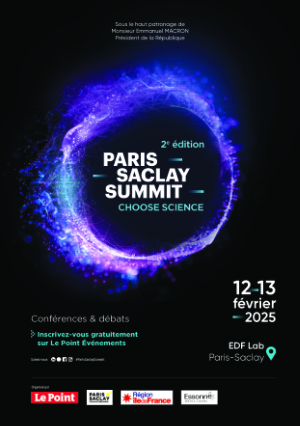AI-based physical layer enhancement for 6G Communications
| ABG-127340 | Master internship | 6 months | 600€ |
| 2024-12-03 |
- Telecommunications
- Computer science
Employer organisation
Le LITIS, Laboratoire d’Informatique, du Traitement de l’Information et des Systèmes, est une unité de recherche (UR 4108) en sciences et technologies de l’information rattachée à l’Université de Rouen Normandie (URN), l’Université Le Havre Normandie (ULHN) et l’Institut National des Sciences Appliquées de Rouen Normandie (INSARN). Le LITIS est né en janvier 2006 de la volonté des membres des laboratoires STIC de Haute-Normandie, et des trois établissements de tutelle, d’unir leurs forces pour valoriser les synergies existantes et renforcer leur visibilité .
Comprendre la nature profonde de l’information et sa représentation est au cœur du projet scientifique du LITIS, qui couvre un large spectre des STIC, de la recherche fondamentale aux domaines appliqués, la démarche du LITIS est résolument pluridisciplinaire, associant praticiens et théoriciens à la jonction de l’informatique, de l’intelligence artificielle, du traitement du signal et des images et des mathématiques, avec des applications dans les systèmes de mobilité intelligents, le traitement de l’information en santé et la valorisation du patrimoine.
Depuis sa création, le LITIS est structuré en sept équipes.
Le LITIS est membre de la Fédération de Recherche CNRS NormaSTIC (FR CNRS 3638) avec le GREYC (UMR CNRS 6072), regroupant ainsi les deux unités de recherche normandes dans le domaine des STIC.
Description
AI has emerged as a major player in the development of the next generation of wireless communication systems, where machine learning (ML) algorithms are widely explored for various tasks to improve the performance of the PHY layer. The research trend in wireless communication systems is mainly focused on the sixth generation of cellular networks (6G).
These expectations are probably motivated by the advantages promised by 6G, which can ensure high data throughput and reliability, with low latency and also, a high level of security against cyber-attacks. However, in dynamic scenarios such as in the case of a connected autonomous vehicle (CAV), which uses systems that include multiple MIMO antennas, wider bandwidths, and a higher degree of temporal variations, the performance losses are significant. Furthermore, ML machine learning algorithms are very well suited to overcome these limitations. ML approaches require a large dataset to train the models, however, in wireless communication systems, labelled data can be easily generated.
The goal of this internship is to design and implement an AI-based architecture for 6G Physical layer. Optimize the proposed AI-based architecture to enhance performance metrics such as bit error rate (BER) and reduce computational complexity.
Profile
• Solid knowledge of radio access technologies such as MIMO, OFDM, physical layers
and/or MAC layers.
• Experience in artificial intelligence and machine learning (AI/ML) algorithms and
software tools (PyTorch, TensorFlow, scikit-learn).
• Excellent communication and writing skills.
• 3GPP standards knowledge is a plus.
• Hands-on Python and C++ coding skills.
Starting date
Vous avez déjà un compte ?
Nouvel utilisateur ?
Get ABG’s monthly newsletters including news, job offers, grants & fellowships and a selection of relevant events…
Discover our members
 MabDesign
MabDesign  Généthon
Généthon  Ifremer
Ifremer  Nokia Bell Labs France
Nokia Bell Labs France  Institut Sup'biotech de Paris
Institut Sup'biotech de Paris  ANRT
ANRT  Laboratoire National de Métrologie et d'Essais - LNE
Laboratoire National de Métrologie et d'Essais - LNE  Institut de Radioprotection et de Sureté Nucléaire - IRSN - Siège
Institut de Radioprotection et de Sureté Nucléaire - IRSN - Siège  PhDOOC
PhDOOC  CESI
CESI  SUEZ
SUEZ  ADEME
ADEME  CASDEN
CASDEN  Aérocentre, Pôle d'excellence régional
Aérocentre, Pôle d'excellence régional  TotalEnergies
TotalEnergies  MabDesign
MabDesign  Groupe AFNOR - Association française de normalisation
Groupe AFNOR - Association française de normalisation  Tecknowmetrix
Tecknowmetrix  ONERA - The French Aerospace Lab
ONERA - The French Aerospace Lab




